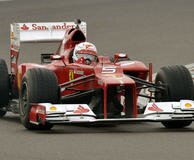-
CONCERTI
- TEATRO
- SPORT
- Sei in:
- Home
- Jdigital califica la anulación de las restricciones de publicidad en España como "muy positiva", pero pide cautela
Gambling: Pure Luck or Total Skill?
Whether gambling is based on luck or skill depends on the specific game being played.
For instance, games like slot machines, roulette, and lotteries depend almost entirely on luck. The outcomes are random and there is no strategy that can change what is essentially a random draw or spin.
On the other hand, certain games such as poker, blackjack, and sports betting do involve a significant element of skill. Knowledge, experience, and strategic decision-making can greatly affect the outcome of these games.
Examples Of Luck vs Skill
Here are three different scenarios; see if you can spot the difference.
Scenario 1:
It’s the final of the World Series of Poker. Player A has bet all his chips with a made straight. He is all-in and is waiting for his opponent, Player B, to make a decision. Player B, meanwhile, is sitting with a nut flush draw with two cards to go.
Player B knows he has only a handful of potential cards in the deck that can improve his hand, and figures that his ‘hand odds’ are about 4/1. However, if he bets and wins the hand, his pot odds – ie. the amount of chips he stands to gain – is roughly 8/1. Statistically, then, does he gamble and play the favorable odds, or fold, wait for another good spot, and avoid the gamble altogether?
Scenario 2:
Here’s our next scenario: it’s a soccer qualifier for the World Cup. With a matter of seconds remaining, and the home team needing to score to win the match and qualify for the finals, needs to go all-out. With virtually the last kick of the match, the home team’s striker launches a speculative ball into the opposing team’s penalty area, it ricochets off the goalpost, back off a defender, and into the goal. The winning team celebrate their outrageous luck wildly.
Scenario 3:
Finally, a gambler in a luckydays casino walks up to a roulette table, closes his eyes and throws a large stack of $100 chips onto no. 36, then waits for the ball to come to a rest. The ball duly hits 36, he picks up his $3,500 winnings and walks off.
Poker As A Game Of Skill
Let’s take a look at poker first, as more than any other games, poker is the one most fiercely debated as regards to its skill vs. gamble elements.
The adage goes that for recreational poker players, poker is 30 percent skill and 70 percent luck, while for pros those figures are reversed.
In an article called “The Role of Skill versus Luck in Poker: Evidence from the World Series of Poker” by Steven D. Levitt and Thomas J. Miles, a group of highly skilled poker players at the 2010 World Series of Poker were analyzed. That set of players achieved an average return on investment (ROI) of over 30 percent, compared to a -15 percent for all other players at the tournament.
Soccer – A Game Of Chance?
Let’s go back to our soccer analogy. Tom Tango, author of ‘The Book: Playing the Percentages in Baseball’, suggested that if you consider just games where a team wins or loses (draws in games make the calculations far too complicated) luck actually plays a bigger factor in sports results than you expect.
In fact, when applying Tango’s calculations to soccer over a typical 10-month season, variations in results due to luck accounts for around 35% of the total variance (luck) leaving around 65% attributed to talent. This is good news for the skillful footballers as talent has approximately double the effect on a team’s win percentage that luck has.
Where Casino Systems Fall Down
On most, if not all, roulette tables around the world there will be a table limit – a maximum bet that once reached you cannot increase your bets any further. The maximum bet varies, but it is generally in the region of 500 – 5,000 times the minimum bet. This means that, even at the upper end of the table limit scale, you cannot exceed 13 losing spins.
Just look at that 20-storey Vegas hotel – it’s living, breathing proof that systems on roulette don’t work.
How Can you Override the Luck Factor?
So, can systems ever work in gambling games?
Even with a game that features a healthy skill element like poker, ALL players will experience a spell of bad variance and go bust – the luck may just not be with the players, even if they’re making sound betting decisions.
So, how can gamblers override the chance factor? With casino games that rely on luck so much, the easy answer is not to play at all. OK, so that’s a little simplistic, but simple bankroll management is the way for long-term success in ANY game involving odds. Play a strict percentage of your bankroll, bank winnings when you’re ahead, and take only ABC decisions that make good sense.
Taking on the Bookies’ Edge
Even good sports betting pros will gamble on Even money (1/1) or odds-on results, and avoid accumulators and wild bets like scorecasts that attract casual gamblers. There’s a reason bookies will advertise odds on a striker to score a hat-trick in a soccer match – because the chances of them doing that, especially if they’re going through a bad spell of form, are much lower than the odds the bookie are quoting.
Sports betting sites and bookies will skew the ‘true’ odds of anything happening (ie the true odds of someone scoring the first goal in a soccer match is generally much higher than the usual 6/1 or 7/1) but when gambling you’re not just taking on luck in itself, you’re taking on the house too.
Can We Avoid Luck
Luck, or chance, is inherent in everything we do. Get knocked over by a car, win a raffle prize or get struck by lightning – all involve chance, and just as in gambling, it’s how you play your luck that’s the key thing.
So, stick to games with favorable house edges or skill/gambling games like poker, and study, practice systems, do your legwork and make the odds work in your favor. It’s either that of give up gambling altogether.
- TEATRO






























